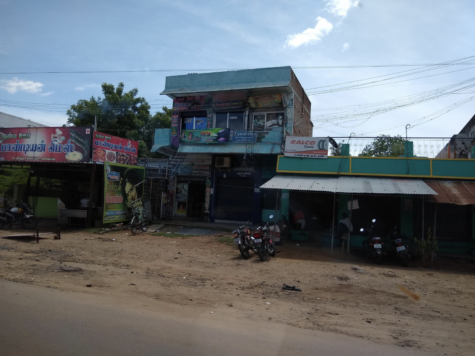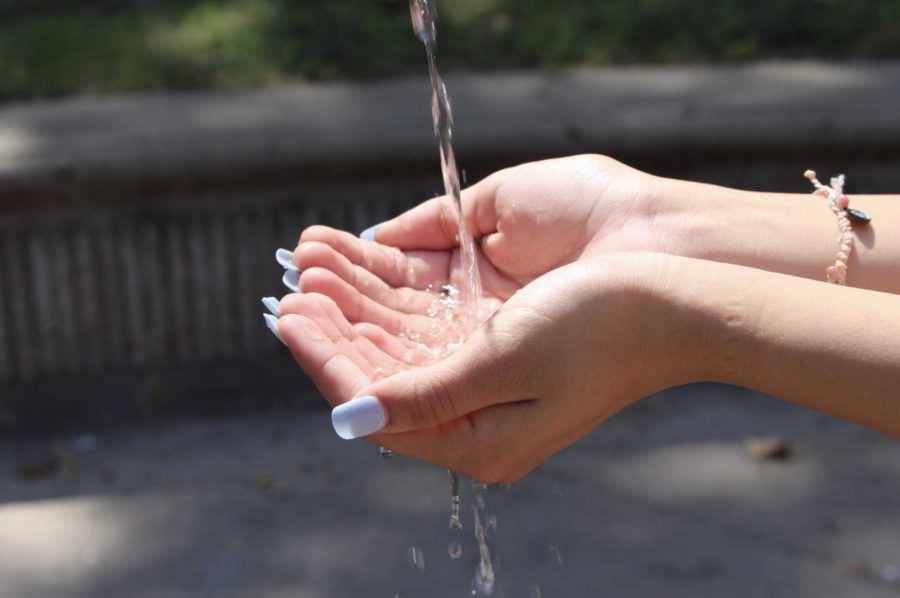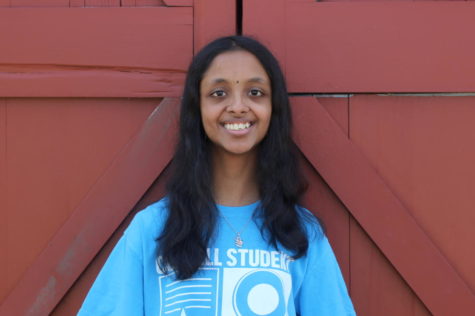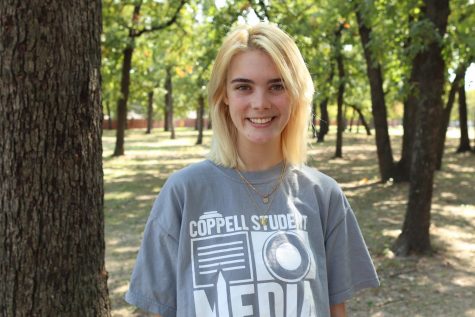A scorching experience
How Chennai’s water crisis taught me gratitude
At Coppell High School, students have free and easy access to water throughout the day. The Sidekick entertainment editor Shravya Mahesh visited India over the summer and realized students have water privileges taken for granted.
August 26, 2019
Vacation.
I have always related the word with paradise, such as a sunny summer getaway to the Bahamas or the shining sands of Cancun. However, this summer brought me a starkly different definition of the word.
Truthfully, I was excited to go to India. I would finally see my cousins and relatives after six years. A taste of something different seemed appealing.
However, we landed in Chennai in peak heat season. Temperatures soared to more than 104 degrees. In North India, four senior citizens on a pilgrimage died of heatstroke . We could not step outside without being soaked in sweat and craving water. Even inside, the air conditioning only partially worked. The situation seemed dire, but at least we had water to keep us cool and hydrated.
Until we did not.
Chennai plunged into a water crisis. In mid-June, it was announced that the four major water reserves were losing water – rapidly. The result of two years of underwhelming monsoon seasons had finally hit.
All at once, restrictions were placed on numerous cities, including where we were visiting in Thyagaraya Nagar. In a preservation attempt, our apartment’s water only ran for three periods: 6 a.m. to 8:30 a.m., 12 p.m. to 2 p.m. and 6 p.m. to 8 p.m. We were forced to adapt our meals and daily actions around these minuscule windows. We filled buckets with running water for us to wash our hands, flush the toilet and wash dishes.
Unfortunately, restricting water was a temporary solution. As the water continued to run out, the problem worsened, proving the need for a better solution. The ground had to be drilled to pump groundwater to the surface.

In Chennai, India, many of the stores and restaurants are run-down and shabby compared to those in Coppell. The Sidekick entertainment editor Shravya Mahesh spend the summer in India, where a water shortage forced locals to use pumped groundwater for their supply.
Since it was from the ground, the water had a brown tinge. It stained the buckets and, when stagnant, salt layered at the top. Drinking water was separate (for hygiene purposes), but extremely costly. And through it all, the sun still blazed through the city, showing its rage onto all that crossed its path.
I struggled to accept the situation. I wanted to be back home, chilling by the pool or laughing with my friends under a properly functioning air conditioner. It felt unfair that I was stuck on the opposite side of the world, suffering for no reason.
One day, my mother and I were shopping when an old, worn woman approached us. She put her hands together and pleaded us for money or food. This woman was one of hundreds in Chennai, begging for assistance. While we had six hours of water and a roof over our heads, the homeless only had a breaking voice and two feet that waddled from person to person, asking the same question. Was it not ungrateful of me, whose situation was temporary, to complain?
Two weeks before we left, it finally rained — not enough to solve the crisis, but still something. The way the rain fell felt celebratory, like the heavens were crying joyously at the miracle. It was so different from the rain back home: it was better.
We are lucky to have air conditioning. We are lucky to have a house. We are lucky to bathe in clean water. We are lucky to have rain. Just a 16-hour plane ride away, there is no clean water, no air conditioning, no rain. So perhaps we should be grateful for the little things; even those, we are extremely lucky to have.
Follow Shravya (@shravyamahesh) on Twitter.












Neeraj iyer • Aug 28, 2019 at 9:33 am
Well written Shravya!! It is nice to see that you understand the circumstances and compare it with yours.
Sarsds Subrsmanian • Aug 28, 2019 at 8:26 am
Shravya,Well written &the messsge also conveyed very well.
One shd not take life for granted.We shd be thankful to God for whatever we have instead of comparing.Well done.Keep ot up
Nishant Medicharla • Aug 26, 2019 at 10:03 pm
Shravya what an amazing story! Thank you for sharing an amazing story and really putting things in perspective!